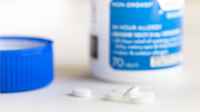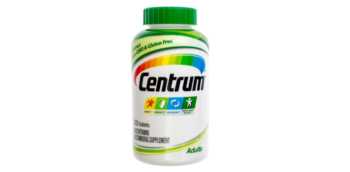
Answer:
Magnesium stearate is found in many supplements because, during supplement manufacture, it makes it easier to work with certain ingredients, making them flow more evenly and preventing them, as well as tablets, from sticking to machines during production. It is created from reacting stearate (from animal fats — often pig — or plant-based sources such as palm oil, coconut oil, or vegetable oil) with magnesium. A very small amount is used in supplements, and it typically comprises less than 1% of a total formulation — less than 20 mg. If it's in a product, you'll see it included in the "Other Ingredients" section of supplement labels.
Concerns have been raised that magnesium stearate can have negative effects, such as raising cholesterol levels, suppressing the immune system, creating biofilms in the body, and causing allergic reactions. As discussed below, there is insufficient scientific evidence to justify these concerns.
Increasing cholesterol levels:
Concern has been raised about the stearic acid in magnesium stearate raising cholesterol levels, as stearic acid is a saturated fat. This should not be a concern because even normal dietary intake of stearic acid has been shown to have no significant effect on total cholesterol, low-density lipoprotein (LDL) or high-density lipoprotein (HDL) cholesterol levels (Yu, Am J Clin Nutr 1995). In addition, the amount of stearic acid from magnesium stearate in supplements is very small. According to USDA nutrition surveys, the average American adult consumes between 5,900 to 8,800 milligrams of stearic acid each day, typically from food sources like beef, poultry, cocoa butter, milk and cheese. A single chocolate bar contains about 5,000 milligrams of stearic acid. Meanwhile, the amount of stearic acid in the magnesium stearate in a dietary supplement is generally less than 20 milligrams.
Immune suppression:
Some websites claim that magnesium stearate suppresses the immune system. This claim seems to be based on on laboratory studies of immune cells from mice showing that that large amounts of stearic acid damaged cell membranes of T-lymphocytes (Tebbey, Immunology 1990). However, these laboratory conditions do not represent what happens inside your body when you ingest normal amounts of stearic acid, let alone even smaller amounts of magnesium stearate. It is highly unlikely the small amount of magnesium stearate in supplements cause immune suppression, and such an effect has not been reported.
Biofilm production:
One popular website claims that magnesium stearate can promote the growth of bacterial colonies in the gastrointestinal tract and create a "biofilm" preventing the absorption of nutrients. However, there does not seem to be clinical evidence behind this. In fact, a laboratory study found stearic acid to inhibit the formation of biofilms (Soni, J Food Prot 2008).
Allergic reaction:
At least one case of allergic reaction to magnesium stearate, which resulted in skin hives, has been reported (Tammaro, J Biol Regul Homeost Agents 2012). However, this type of reaction seems to be quite rare.
The bottom line:
The amount of magnesium stearate in dietary supplements appears to be quite safe. Nevertheless, it is only there to help with manufacturing and it provides no nutritional advantage. If you want to avoid it, look for it in the "Other Ingredients" section on product labels. ConsumerLab.com publishes all of the listed ingredients for every product in its Product Reviews.
Be aware that magnesium stearate in dietary supplements can come from either vegetable or animal sources. If you're looking for a vegetarian source, look for a product that lists "vegetable grade" or "vegetable magnesium stearate." Otherwise, it is most likely sourced from animals.
For information about other inactive ingredients used in supplements, see ConsumerLab.com's Review of Inactive Ingredients.
Join today to unlock all member benefits including full access to all CL Answers and over 1,400 reviews.
Join NowAlready a member? Sign In Here.
Join now at www.consumerlab.com/join/















Submit your comment
This feature is restricted to active members.
Join now to add comments and get all member benefits, including over 1,400 reviews.
Join NowAlready a member? Sign in here.